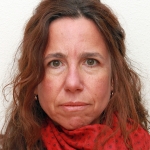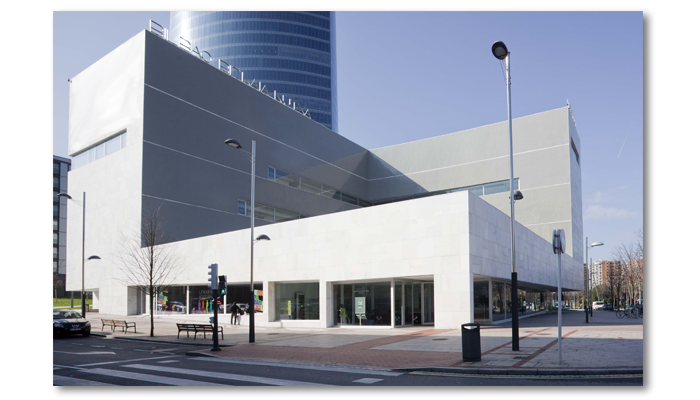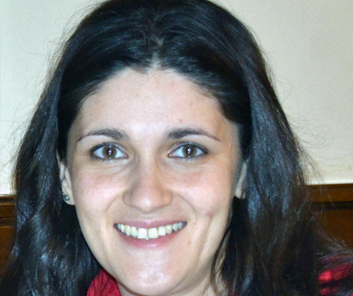BC3 Seminar: Physical adequacy of a power generation system: The case of Spain in the long term
BC3-Basque Centre for Climate Change Sede Building 1, 1st floor, Scientific Park of the University of the Basque Country, Leioa, Bizkaia, SpainGeneration adequacy is a key ingredient to security of electricity supply. We develop a stochastic model of demand and supply (from different technologies) for measuring it from a physical or technical point of view. We adopt several metrics of supply shortfalls. Next we demonstrate the model by example. Because of limited interconnections with neighboring countries, Spain can be considered an electric island. We get numerical estimates of the parameters underlying the model.
COP 24 – Side Event: Implementation on non-state climate policies and targets
COP 24 Katowice, PolandRegional governments, cities, businesses and others are committing to ambitious climate targets and policies, both in adaptation and mitigation. The challenge is how to implement them effectively and increase ambition. We will discuss recent developments and ways forward in non-state action.
11th International Forum on Urbanism (IFoU) Congress 2018 December 10-11-12 in Barcelona
Barcelona Barcelona, SpainUIC Barcelona is hosting the 11th edition of the annual conference of the International Forum on Urbanism (IFoU), organised in cooperation with the Urban Resilience Research Net (URNet) and UN-Habitat.
Novia Salcedo’s LANALDI program
BC3-Basque Centre for Climate Change Sede Building 1, 1st floor, Scientific Park of the University of the Basque Country, Leioa, Bizkaia, SpainNovia Salcedo’s LANALDI program
Dr Marcela Brugnach will give a lecture at BC3 on her research
BC3-Basque Centre for Climate Change Sede Building 1, 1st floor, Scientific Park of the University of the Basque Country, Leioa, Bizkaia, SpainMarcela Brugnach PhD, is an Assistant Professor in the Water Engineering and Management group in the Civil Engineering Department of the University of Twente. She has completed doctoral studies in both Bioresource Engineering and Forest Ecology from Oregon State University (USA, 2003), and a masters degree in Computer Science from Universidad Nacional del Centro (Argentina, 1991). After completing her doctoral education, she became a postdoctoral fellow at the University of California, Davis (USA, 2003-2005), and, later on, a research associate in the Institute for Environmental Systems Research at the University of Osnabrück (Germany, 2005-2009).
Jardunaldia: Bizkaiko hazkunde berdea
Bizkaia Aretoa Conference Hall Avda Abandoibarra, 3, Bilbao, SpainWorkshop: Bizkaiko Hazkunde Berdeari Buruzko Jardunaldia 2019ko urtarrilaren 24a Bizkaia Aretoa, Bilbao. Egitaraua: 18.00 Erakundeen ongi-etorria Nora Sarasola, BBK-ko Gizarte Ekintza-ren Zuzendaria Francisco Juaristi Larrinaga, Euskal […]
BC3 Lunch Seminar: Heat waves and impacts in the urban systems
BC3-Basque Centre for Climate Change Sede Building 1, 1st floor, Scientific Park of the University of the Basque Country, Leioa, Bizkaia, SpainUrban systems are not only major drivers of climate change, but also impact hotspots. The processes of global warming and urban population growth make our urban agglomerations vulnerable to chain reactions triggered by climate related hazards. Hence, the reliable and cost-effective assessment of future climate impact is of high importance. Two major approaches emerge from the literature: i) detailed spatially explicit assessments, and ii) more holistic approaches consistently assessing multiple cities.
Asteklima: Klima aldaketak gure osasunari ekarriko dizkion erronka berriak
Edificio Bizkaia Alameda Urquijo Nº36, Bilbao, SpainLos objetivos del encuentro son ahondar los diversos impactos que el cambio climático puede tener en la salud desde diferentes perspectivas.
El cambio climático afecta los determinantes sociales y ambientales de la salud, por ejemplo aire limpio, agua potable, enfermedades de trasmisión, salud mental, etc.
Asteklima: Big Data, klima aldaketaren aurkako erreminta
Edificio Bizkaia Alameda Urquijo Nº36, Bilbao, SpainEl primer paso para encontrar una solución para cualquier problema, grande o pequeño, es comprenderlo tanto como sea humanamente posible. Necesitamos un conocimiento sobre lo que está sucediendo en nuestro planeta y lo que está causando los cambios ambientales más significativos, ¿podemos revertirlos? Y cuáles son sus consecuencias para nuestras sociedades. Más importante aún, debemos entender cómo el mundo de hoy es diferente del mundo de ayer y cómo podemos usar esa información para tener una visión más clara del mundo de mañana y cómo podemos ayudar a construirlo como sociedad.
BC3 Lunch Seminar: How do trees “handwrite” and manage to communicate with us?
BC3-Basque Centre for Climate Change Sede Building 1, 1st floor, Scientific Park of the University of the Basque Country, Leioa, Bizkaia, SpainHandwriting is a human attributed characteristic, being widely accepted that the oldest writing dates around 3400 BC. But actually trees “invented handwriting” first … about 390 million years ago when conifer trees appeared, and they have been writing ever since. Each year trees form new wood cells that arrange in concentric circles forming what we call annual tree-rings, which is their way of “handwriting” and communicate with us. It was in the early 1900s when the astronomer Andrew E. Douglass managed to cipher tree-rings “handwriting”.










